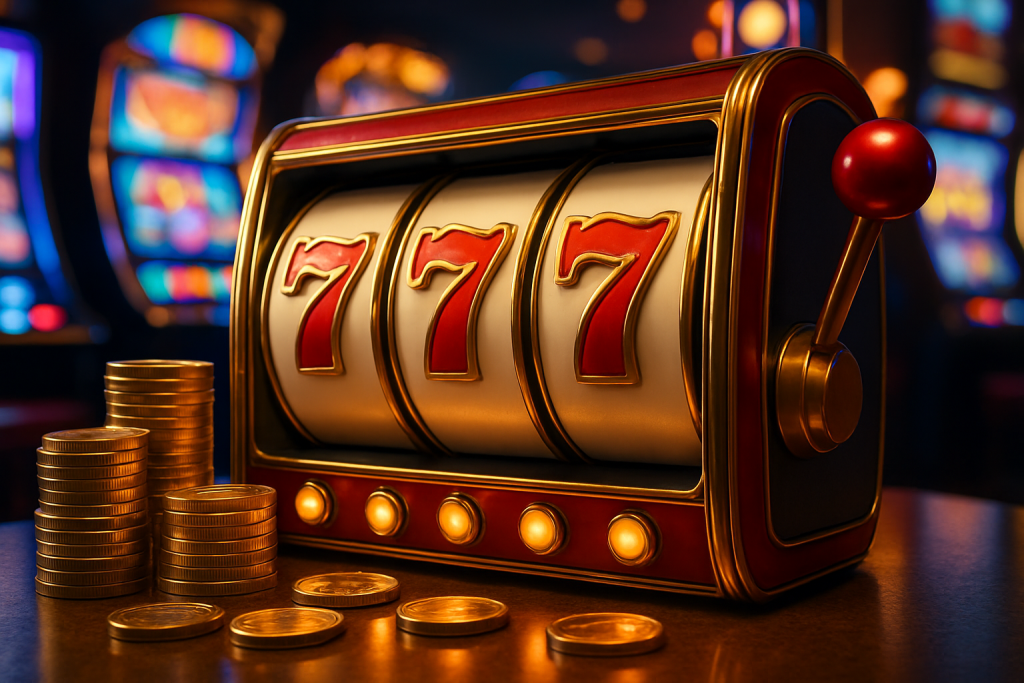
Progressive Jackpot Slots: Are They Worth the Chase?
Progressive jackpot slots have become a distinctive feature in the world of online slot machines, offering players a chance to win enormous prizes with a single spin. These jackpots increase every time someone places a bet, creating the potential for multimillion-pound rewards. But beyond the tempting prize pools lies the question: is it truly worth pursuing such wins, or is it mostly a psychological hook?
How Progressive Jackpot Systems Work
Progressive jackpots function by pooling a small percentage of every wager placed into a shared prize fund. This can happen on a single game or across multiple games connected within a network. The more players contribute, the faster the jackpot grows. Some of the most popular networked games, such as Mega Moolah or WowPot, have reached record-breaking amounts because of this system.
Jackpots are usually awarded through either random selection or specific bonus rounds, and the criteria to win often require playing at maximum bet levels. This means that only a fraction of players are actually eligible for the top prize, even if they play regularly. Understanding the mechanics can help avoid common misconceptions and manage expectations.
There’s also an important distinction between progressive and fixed jackpots. Fixed jackpots offer stable prizes regardless of the number of players, while progressive jackpots fluctuate constantly. This volatility adds excitement but also increases risk, making responsible gameplay essential.
What Makes These Slots So Attractive
The primary appeal of progressive jackpot slots is the chance to win life-altering sums of money. This is heavily promoted by game developers, with winners often featured in news stories. These narratives create strong emotional connections, encouraging more users to try their luck.
Another factor is the gamified experience — colourful graphics, engaging bonus features, and the presence of jackpot meters create a sense of urgency and progress. This design stimulates the reward system in the brain and can keep players engaged longer than they might have intended.
Finally, some progressive jackpots are tiered, offering multiple levels of prizes (Mini, Minor, Major, Mega), which adds additional layers of potential reward. Even if the top prize remains elusive, players can still feel that smaller victories are within reach, reinforcing repeated play.
Winning Odds and Player Strategies
The odds of hitting a progressive jackpot are extremely low — often compared to winning the lottery. Despite this, many players continue to chase them in hopes of being the next big winner. Statistically, the likelihood remains unchanged regardless of how long someone plays, as each spin is independent.
For players who want to participate without spending excessively, a useful strategy is to wait until the jackpot has reached a particularly high threshold. Historically, some games tend to pay out once the jackpot reaches a certain size, making it slightly more worthwhile to play at that point.
Another approach is to look for local or in-house progressives that are only available on specific games or sites. These typically have lower jackpots but also better odds due to a smaller player base. While the prizes aren’t as spectacular, the probability of winning is comparatively higher.
The Cost of Chasing Millions
Pursuing progressive jackpots can be an expensive endeavour if not approached with caution. Because these games often require higher bets to be eligible for the full prize, players may spend more than they realise over time. The return-to-player (RTP) percentage on these games is also usually lower than on standard slots.
For casual players, it’s important to balance the dream of winning big with the reality of budget constraints. Setting strict limits and viewing gameplay as entertainment rather than investment can help prevent problematic behaviour and financial strain.
In many cases, those who focus solely on the jackpot end up missing out on smaller, more frequent wins that provide better value over time. While the top prize is enticing, the path toward it should always be planned and controlled.

Are Progressive Slots Worth It?
Whether or not progressive slots are worth playing depends heavily on the individual’s goals and expectations. For players who enjoy the thrill of possibility and are financially prepared for the long odds, they can be an exciting part of the gaming experience. However, for those seeking consistent returns or structured play, traditional slots may be more appropriate.
What makes progressive jackpots risky is their unpredictability. Unlike games of skill or strategy, slots are entirely chance-based. No amount of experience or technique can increase the odds of winning a jackpot, which means emotional detachment and financial discipline are key.
Ultimately, progressive jackpots offer the potential for extraordinary rewards at the cost of higher risk. When treated as an entertaining diversion rather than a reliable source of income, they can be enjoyed responsibly without unrealistic expectations.
Final Thoughts on Playing Responsibly
Playing responsibly means knowing when to stop, understanding how the game works, and being honest about what you expect to gain. While chasing a big win might be fun, it should never come at the expense of your financial or emotional wellbeing.
Setting limits, tracking spending, and avoiding the temptation to recover losses are crucial habits for anyone engaging with progressive jackpot slots. Many gaming providers also offer tools to help with this, such as session time reminders and loss limits.
In conclusion, progressive jackpots can be a thrilling part of the gaming landscape when played with awareness. The dream of winning big is only worthwhile when it doesn’t turn into a personal or financial burden.
